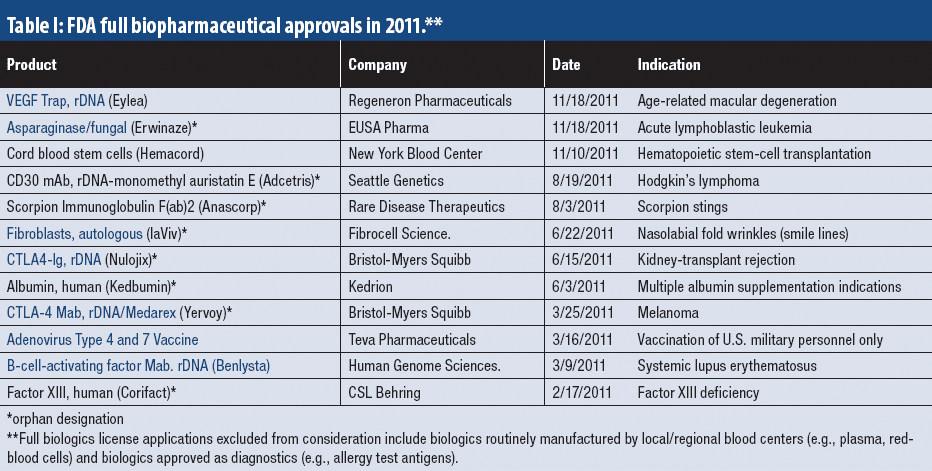A Roundup of Informex
PTSM: Pharmaceutical Technology Sourcing and Management
The latest developments from contract API manufacturers and fine-chemical suppliers from Informex, held in New Orleans last month.
Contract API manufacturers and fine-chemical producers assembled in New Orleans last month for Informex, an annual trade show for custom and batch manufacturers, which was held Feb. 14–17. Below is a roundup of news from exhibitors, including an editorial podcast with the organizers of Informex on this year’s show.
Aesica has opened a new purpose-built $4.6-million high-potency manufacturing facility for the manufacture of formulated products and plans to upgrade its API manufacturing facilities to enabling manufacture of high-potency APIs at commercial scale. The upgrade will allow Aesica to manufacture SafeBridge Category 3 APIs and formulated products from pilot to commercial scale from two of its sites in Europe. The new facilities will enable Aesica to successfully manage high-potency API production at quantities from 1 kg to 200 kg. Further investment in API manufacturing capability in 2013 will equip Aesica to produce batch sizes up to 600 kg.
Almac is doubling its analytical capacity at its 240,000-ft2 North American headquarters in Souderton, Pennsylvania. The facility offers full-service, integrated clinical packaging, drug-supply management, and technology services to pharmaceutical and biotechnology clients. Almac’s additional laboratory investment will include polymorph and salt screening and solid-form development. The new facility is also equipped with a bathless dissolution apparatus for comparative dissolution studies.
In other news, Almac also has acquired two new pieces of encapsulation equipment for its North American headquarters in Souderton, Pennsylvania: the Bosch GKF 702 capsule filler with integrated KKE 1700 checkweigher. The Bosch cGMP-compliant system is able to produce 42,000 capsules per hour compared to the 2,700-4,500 output of Almac’s current machine in the United States. Further capabilities of the new equipment include powder, pellet, tablet, and placebo fill as well as multifill.
Asymchem Laboratories (Tianjin) reported on the opening its new large-scale manufacturing facility, Jilin Asymchem Laboratories, in Dunhua, Jilin province, China. Phase I completion of Dunhua’s manufacturing facility included 5000–20,000 L vessels for cGMP manufacture of raw materials to intermediates. Phase II involved completion of a second module for a total capacity of 532 m3. This site offers manufacturing as a standalone service and also back-integration for internal downstream cGMP targets to be further processed in Asymchem’s Tianjin 2 GMP facility. Phase III construction in Dunhua for a GMP API manufacturing plant is on schedule and is expected to be completed later this year.
BASF has opened an industrial biotechnology and microbiology research center in Tarrytown, New York. The company uses biotechnological methods to produce products such as vitamins, enzymes, pharmaceutical intermediates, and specialties for the personal care, food and feed industries. One focus of the research laboratory work is to develop even more efficient and resource-conserving production processes. The use of metabolic engineering, or the targeted modification of metabolism, is used to enhance the efficiency of the microorganisms used in these production processes. The laboratory will also be used to develop bacterial biofilms.
Carbogen Amcis reported in February 2012 that its Bubendorf, Switzerland, API manufacturing site had successfully an FDA cGMP inspection. The inspection was completed in September 2011. The Bubendorf site supports 160 employees and is focused on process optimization and supply of late-phase and commercial APIs and highly potent APIs.
Catalent Pharma has completed the acquisition of the clinical-trial supplies business of Aptuit. The transaction was previously announced in August 2011.
Codexis CEO Alan Shaw has resigned from the company to pursue other interests. Peter Strumph, head of the firm’s pharmaceuticals business, was named interim CEO as the company searches for a new CEO.
Colder Products, a developer of connectors, is further enhancing its DrumQuik PRO and DrumQuik PUR chemical-dispensing systems with the addition of a new tethered protective dust cover and extended shipping plug. In addition to storing and protecting the DrumQuik coupler for extended use, the tethered cover provides a place to store the drum-insert shipping plug when the coupler is connected.
DSM reported on InnoSyn, a route-scouting service that supports R&D as well as implementation of economical and scalable routes. The service offering includes consulting, route scouting, biocatalyst/catalyst screening, prefeasibility studies, full feasibility studies, mini-plant campaigns, and support in transfer and implementation. Various technical packages are provided for biocatalysis, homogeneous catalysis, organic chemistry and process R&D and continuous chemistry (i.e., microreactor technology).
Gelest recently introduced a new synthetic method for carbon-carbon bond formation as it detailed in a new brochure, "Silicon-Based Cross-Coupling Reagents." The brochure contains more than 160 references, including reviews on the formation of biaryl, styrene, diene, triene, aryl acetylene, diaryl acetylene, pyridine and enyne derivatives and Heck coupling/cross-couping cascade reaction sequences.
Helsinn Advanced Synthesis reported on its cytotoxic and high-potency manufacturing facilities in Biasca, Switzerland and multiyear expansion in this area. The company’s capabilities include pilot-scale, small-scale, and commercial-scale capabilities for manufacturing highly potent APIs. It cytotoxic capabilities include isolated and dedicated cytotoxic quality control and R&D laboratories, raw-materials and finished-goods warehousing, and finishing and sampling areas. A new laboratory has been constructed exclusively for small-scale cytotoxic production, design of experiment, and initial process development. The company also has pilot-scale, small-scale, and commercial-scale capabilities for manufacturing cytotoxic small molecules.
Informex will be held Feb. 19–22, 2013, in Anaheim, California. Highlights of the 2012 installment of Informex are discussed in a Pharmaceutical Technology editorial podcast with the show’s organizers.
Lonza and Eclipse Therapeutics have formed a partnership to manufacture Eclipse’s cancer therapeutic antibody, ET-101. Lonza will produce Phase I clinical material at its facility in Slough, England.
Neuland Laboratories, a contract manufacturer of APIs, intermediates, and peptides, launched a new mobile app version of its GuarD project-management system. GuarD was developed to support customers’ participation in project planning and real-time tracking. GuarD uses the principles of critical-chain project management, which emphasizes resource availability and flexibility to maintain project timelines. GuarD allows for a detailed project plan that is viewable in an online template to provide a customer progress of its project, information on the latest task updates, expected time of completion, and other information important to the project.
Pharmaceutics International (Pii) has commenced construction of its new 24,000-ft 2 cGMP aseptic fill–finish manufacturing facility in Hunt Valley, Maryland. Targeted for completion in the fourth quarter 2012, the new facility will more than double the company’s current sterile GMP manufacture capacity. Fill–finish suites will include automated vial- and syringe-filling, inspection and labeling equipment capable of producing batch sizes of 100,000 plus units. The facility expansion follows the company’s recent FDA pre-approval inspection, which allows the company to commercially manufacture an aseptic vial in its existing Hunt Valley aseptic facility.
SAFC reported on its recent $350-million acquisition of BioReliance, a provider of global biopharmaceutical testing services, from Avista Capital Partners. BioReliance provides biologic, specialized toxicology and animal health testing to pharmaceutical, biopharmaceutical, diagnostics, and other life-science companies. BioReliance employs more than 650 people and is headquartered in Rockville, Maryland, with additional operations in Glasgow and Stirling, Scotland, and sales offices in Tokyo, Japan, and Bangalore, India. The acquisition complements SAFC’s industrial media position, and its CompoZr zinc finger nuclease technology is synergistic with BioReliance's toxicology and animal-health services operations for the development of new assays, cell lines, and animal models, according to the company.
Saltigo, part of Lanxess, appointed Joerg Scheider to assume management of the agrochemical and fine chemicals business line at Saltigo, effective Feb. 1, 2012. He was previously managing director of Lanxess Elastomeros do Brasil.
The Society of Chemical Manufacturers and Affiliates(SOCMA) reported that several new companies joined the Bulk Pharmaceutical Task Force (BPTF), an affiliate of SOCMA in 2011. SOCMA is the trade association representing custom and batch manufacturers, including contract manufacturers of APIs and fine-chemical producers. Joining BPTF were Ampac Fine Chemicals, Cambridge Major Laboratories, DSM, Evonik, Hovione, and Polypeptide Laboratories. Created in 2002, BPTF’s primary focus is drug-ingredient quality issues, such as cGMPs and drug supply-chain safety.
Also, in the fourth quarter of 2011, six new member companies joined SOCMA. These companies were BioChemInsights, a provider of databases of life-sciences molecules; Cardno, an environmental consulting firm; Heritage Environmental Services, another environmental firm; Inventys, a provider of organic chemicals for the pharmaceutical and agrochemical sectors; Pharmatek Laboratories, a pharmaceutical-chemistry firm, including a provider of highly potent compounds; and SARmont, a provider of medicinal chemistry and lead-optimization services.
Solvias and RohnerChem reported on their partnership for custom research and manufacturing services, which was announced in October 2011. The preferred but nonexclusive partnership provides services from route scouting to commercial manufacturing. Solvias brings expertise in chemical, analytical and solid-state development, and RohnerChem brings experience in scale-up and commercial-scale custom synthesis of complex, small-molecule fine chemicals and APIs. Key capabilities from Solvias include high-throughput screening methods, which have been used in asymmetric homogeneous catalysis, CX-couplings, racemate resolutions, carbonylations, hydroformylations, biocatalysis development, and various other transformations. Solvias’ solid-state development group also is equipped to assist in developing crystallization processes, perform polymorphism studies, and provide guidance in the development of the best solid form for an API. After process optimization, which can be performed either at Solvias’ or at RohnerChem’s kilo laboratories, commercial quantities can be manufactured at RohnerChem facilities.



